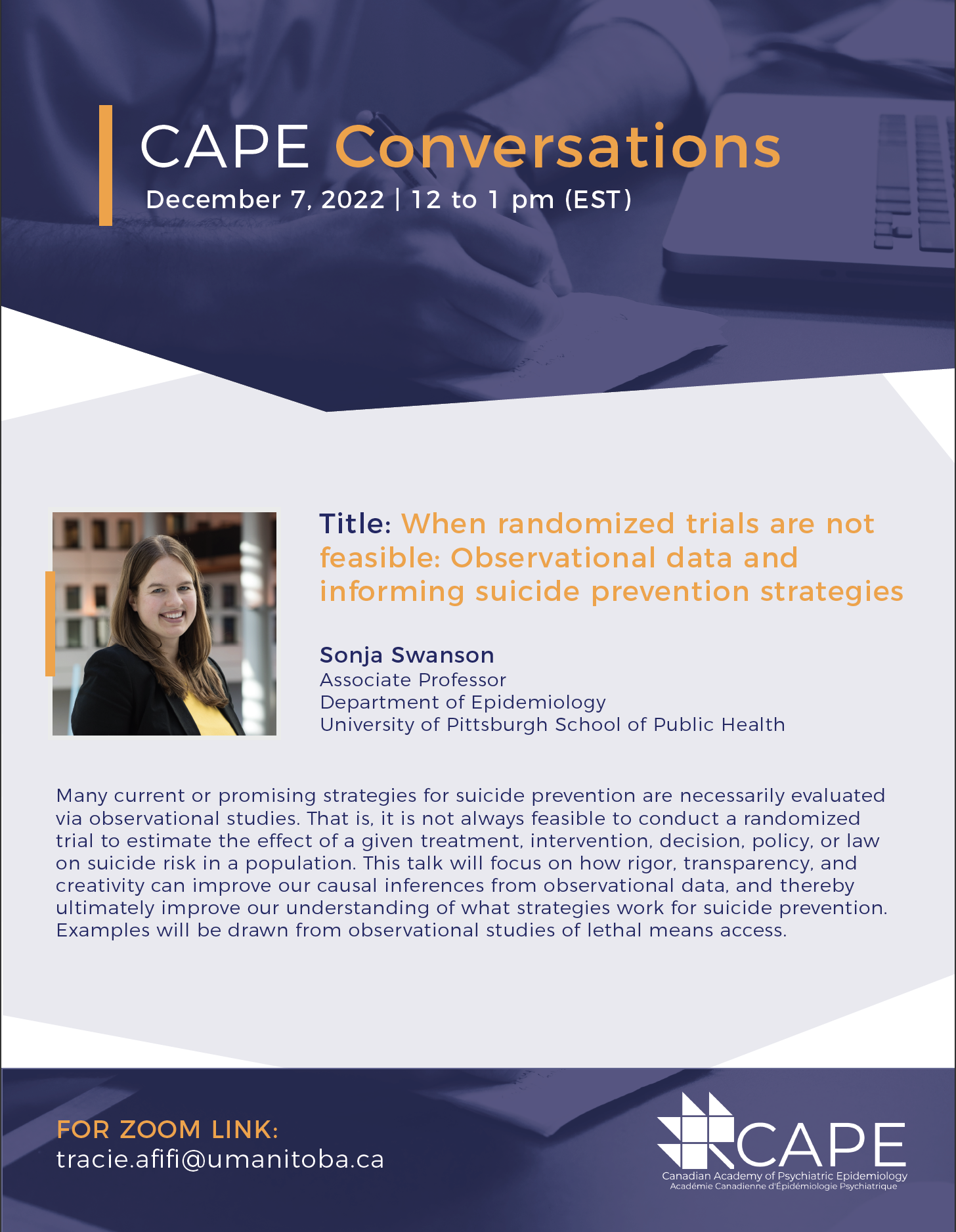
Integrating Big Data and Lived Experience to inform and evaluate responses to the overdose crisis in Ontario
Background: Substance-related harm is a leading public health issue in Canada, with over 30,000 opioid-toxicity deaths across Canada since 2016, and clear evidence of worsening trends during the COVID-19 pandemic. This has led to rapid shifts in clinical practice and the implementation of numerous policies and investments in services designed to support people who use drugs and prevent drug toxicities. In Ontario, large, linked health administrative databases provide an opportunity to inform and evaluate this rapidly shifting landscape to ensure optimum investment in safe, effective responses to the overdose crisis.
Learning Objectives:
1. Discuss strengths and limitations of data available for research purposes in Ontario that can be used to study substance-related diagnoses and harms
2. Describe examples of how these data can inform and evaluate policies and programs and the implications of this work
3. Share the importance and benefits of engaging people who use drugs in the research process







